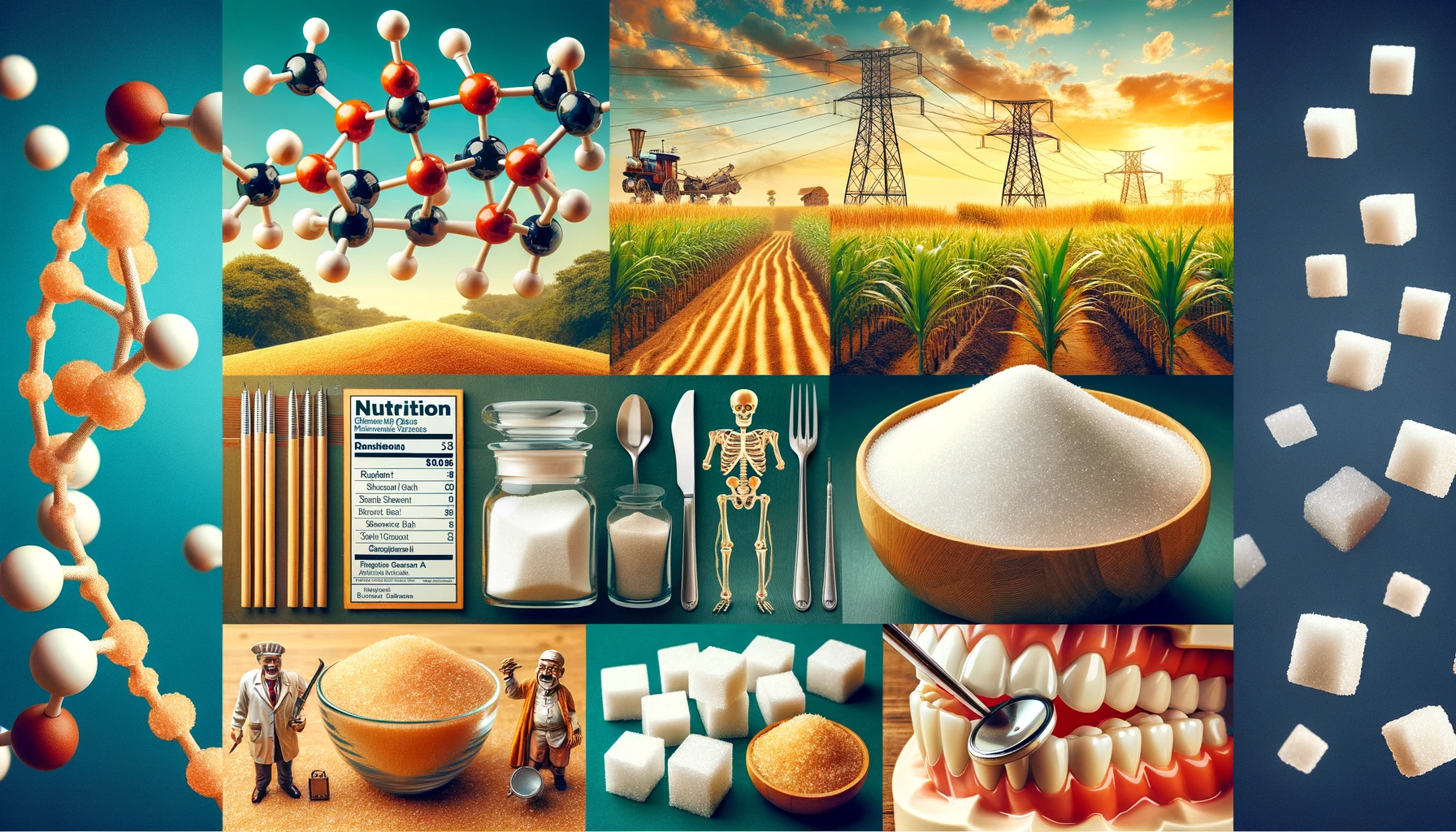In recent years, concerns about the connection between sugar consumption and cancer risk have gained significant attention. As we delve into the world of nutrition and its impact on health, it’s essential to explore the intricate relationship between sugar and cancer development. This article aims to shed light on this controversial topic and help you make informed dietary choices.
Understanding the Basics: What is Sugar?
Before we delve into the sugar-cancer link, let’s start with the basics. Sugar, in its various forms, is a simple carbohydrate commonly found in our daily diet. It can be classified into two main types:
1. Natural Sugars
- These sugars occur naturally in foods like fruits, vegetables, and dairy products.
- Natural sugars often come with beneficial nutrients and fiber, which can mitigate their negative effects.
2. Added Sugars
- Added sugars are those incorporated into processed foods and beverages during manufacturing.
- These sugars provide empty calories, offering little to no nutritional value.
The Sugar-Cancer Connection: What Research Tells Us
Recent scientific studies have suggested a potential link between high sugar intake and cancer development. While the evidence isn’t conclusive, several mechanisms are worth considering:
1. Insulin Resistance and Hyperinsulinemia
- Excessive sugar consumption can lead to insulin resistance, where cells become less responsive to insulin.
- Elevated insulin levels may promote cancer cell growth, as some tumors thrive in insulin-rich environments.
2. Inflammation
- Sugary diets are known to promote chronic inflammation in the body.
- Persistent inflammation can increase the risk of cancer, as it damages healthy cells and DNA.
3. Weight Gain and Obesity
- High sugar diets are closely associated with weight gain and obesity.
- Obesity is a known risk factor for various cancers, including breast, colorectal, and pancreatic cancer.
4. Tumor Feeding
- Some cancer cells feed on glucose, the primary product of sugar metabolism.
- Higher sugar consumption may provide fuel for cancer growth in susceptible individuals.
Differentiating Between Types of Sugar
Not all sugars are created equal, and it’s essential to differentiate between the various sources of sugar in our diets:
1. Fructose
- Found in fruits and honey, fructose is often regarded as a healthier sugar source when consumed in moderation.
- High fructose corn syrup (HFCS), a common sweetener in processed foods, is a different story.
2. Sucrose
- Sucrose, or table sugar, is a combination of glucose and fructose.
- It is commonly used in baked goods, candies, and soft drinks.
3. Artificial Sweeteners
- While artificial sweeteners contain no calories, their long-term health effects remain a topic of debate.
- Limited consumption may be a safer option for those looking to reduce sugar intake.
Practical Tips for a Healthier Diet
As we navigate the sugar-cancer link, here are some practical tips to help you make healthier dietary choices:
1. Read Food Labels
- Check for hidden sugars in packaged foods under various names like sucrose, high fructose corn syrup, and agave nectar.
2. Choose Whole Foods
- Opt for whole fruits, vegetables, and whole grains to ensure you’re consuming natural sugars along with essential nutrients.
3. Limit Added Sugars
- Minimize your intake of sugary beverages, candies, and processed snacks.
- Be cautious of condiments and sauces, which may contain added sugars.
4. Stay Hydrated
- Choose water, herbal tea, or unsweetened beverages over sugary drinks.
5. Consult a Healthcare Professional
- If you have specific health concerns or dietary questions related to cancer risk, consult with a healthcare provider or registered dietitian.
Conclusion
While the sugar-cancer link remains a complex and evolving topic, it’s clear that reducing excessive sugar consumption can have multiple health benefits. Make informed choices about your diet, prioritize whole foods, and remember that moderation is key. By taking steps to reduce your sugar intake, you can contribute to a healthier lifestyle and potentially lower your risk of cancer.
Remember that individual health needs and responses can vary, so it’s always a good idea to consult with a healthcare professional for personalized advice.
